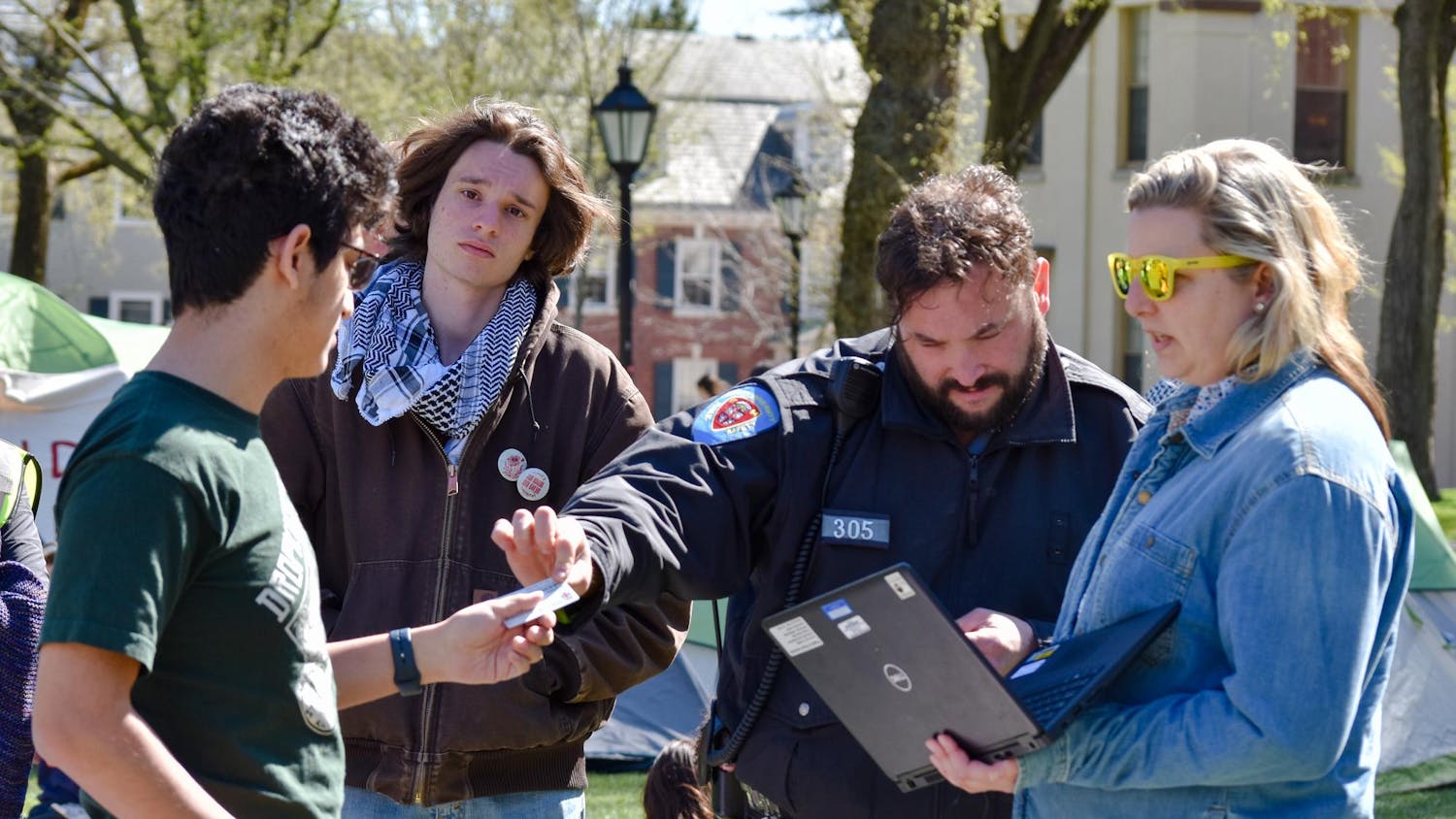Students enrolled in some history courses this semester have found their professors using a surprising teaching technique — role-playing — as a means of engaging them in the material. Three history professors have incorporated Reacting to the Past, a role-playing game that originated at Barnard College, into their courses, said Nancy Jacobs, associate professor of history and Africana studies.
RTTP assigns students the roles of various historical characters and places the class in tense situations that require compromise and debate, said Joan Richards, professor of history. While acclimating to the character and scenario can be difficult, students find the overall experience engaging and constructive, Richards said.
The game will be featured in HIST 1030: “Southern African History,” taught by Jacobs, HIST 0522N: “Reason, Revolution and Reaction in Europe,” taught by Richards and HIST 0521A: “Christianity in Conflict in the Medieval Mediterranean,” taught by Jonathan Conant, associate professor of history.
In preparation for RTTP, students learn background information about the event they are role-playing, including key figures, events and movements of thought, Jacobs said.
“Students coming out of high school may think that history is about memorization and facts, and is a somewhat passive discipline,” said Ethan Pollock, director of undergraduate studies for the history department. These courses “help students realize is that materials can be actively used to formulate arguments.”
During the game, students play characters who belong to different groups and factions, and they must collaborate with their groups to reach a common goal through debate and discussion. For example, in one game, students role-play the conservative, moderate and liberal groups in the National Constituent Assembly who must write a new constitution during the French Revolution, Richards said.
RTTP is almost entirely student-run, Jacobs said. While professors act as masters of the game, they only intervene when the debate veers off topic, Conant said.
“It can be difficult at first for students to figure out what we’re doing,” Richards said. “It takes committed students to make this work.”
Because the game allows for such freedom, students can proceed with actions such as declaring a civil war, Jacobs said.
“It’s not called ‘Reenacting the Past’; it’s called ‘Reacting to the Past,’” Jacobs said. “Things can happen in class that didn’t happen in history.”
This marked the third year that RTTP was integrated into history classrooms. In past years, students have sometimes been assigned roles that forced them to advocate beliefs very different from their own, Richards said.
Ian Shank ’16, who took “Reason, Revolution and Reaction in Europe” in spring 2014, said a group of students played the part of a mob in the French Revolution by rioting and singing revolutionary songs while marching around the Main Green. Shank, meanwhile, played the role of bishop.
“My position in the game was totally at odds with everything I believe to be true, (but) because you assume that role in a very combative environment … that solidified my position,” Shank said.
Serena Leis ’17, who has taken two courses with an RTTP component, was also exposed to controversial social and political thoughts in HIST0971I: “Science and Society in Darwin’s England” during her freshman year. Students in the class portrayed the Royal Society debating whether to award the prestigious Copley Medal to Charles Darwin.
“A lot of arguments that were made were based off racism or sexism, and some people had trouble with that,” Leis said. “I had less trouble because it’s like acting — this isn’t who you are.”
RTTP has succeeded in making students more engaged and excited about classes, said Conant, who also used the game when he taught at the University of San Diego.
“Years later, they would come back and say, ‘That class was really formative in making me confident about speaking in class, or helping me write persuasively or speak persuasively,’” Conant said.
Pollock said the game helps students view history both analytically and empathetically. “Part of history is to hopefully teach people empathy to the range of human experience, and that range of experience can be quite dramatic and hard,” Pollock said.
RTTP culminates with a final discussion, in which students reflect on their decisions and the actual resolutions of the historical events.
A previous version of this article misstated that role-playing would also be implemented in HIST 1205: “The Long Fall of the Roman Empire." The Herald regrets the error.




